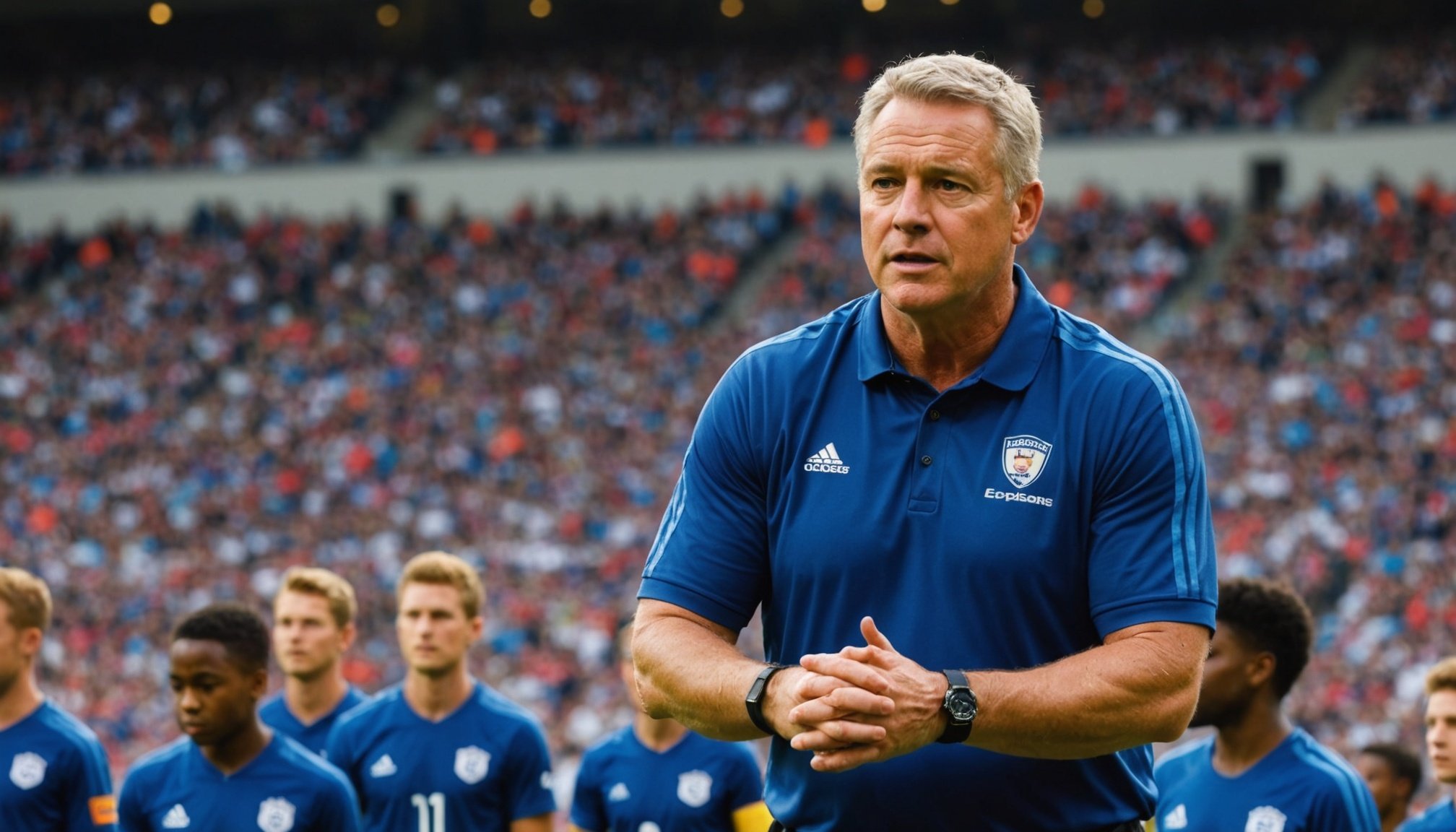Understanding the Importance of Leadership in Youth Football
In the realm of youth sports development, leadership in youth football is pivotal for nurturing future athletes and citizens. Effective leaders in football exhibit qualities such as decisiveness, communication, and empathy. These traits are instrumental in creating a positive team dynamic, crucial for collective success.
The importance of leadership extends beyond immediate team performance, fostering an environment where youth learn accountability and teamwork. Coaches often observe improved team dynamics and resilience when leadership is emphasized, as players learn to support and trust each other.
Also read : Unlocking agility: specialized training drills to boost football performance
Long-term benefits of cultivating leadership in young athletes include enhanced self-confidence and improved decision-making skills, essential tools both on the field and in daily life. Young players who are encouraged to lead often become competent adults, capable of navigating challenges effectively.
Additionally, leadership skills contribute to better academic and social achievements, as youth transfer these competencies beyond sports. Ensuring each player is given a chance to lead can inspire improvements in youth sports development, promoting a holistic approach to athlete growth. By prioritizing leadership, we invest in both the sport and the societal evolution of our youth.
Also to see : Top Recovery Strategies for Football Players After Intense Double-Header Matches
Strategies for Identifying Potential Leaders
In the quest for effective leadership in youth football, the first step is identifying potential leaders. Look for key traits in young athletes that suggest they possess leadership potential. Attributes such as confidence, positivity, and the ability to inspire peers can indicate a budding leader. Moreover, players who naturally take initiative or show resilience in challenging situations often emerge as leaders.
Utilizing observation techniques can be a valuable tool in this assessment process. During practices or matches, coaches should observe how players communicate and respond to their teammates. Players who use empathetic communication and demonstrate strong interpersonal skills can be effective leaders. Additionally, noting how players tackle setbacks or disagreements can provide insights into their leadership styles.
Communication and empathy are crucial aspects of spotting potential leaders. Players who can articulate their thoughts clearly and listen to teammates demonstrate foundational leadership skills. Including specific exercises focused on enhancing these skills in practice can further assist in revealing potential.
Identifying leadership in youth football is integral to cultivating a productive team environment. By systematically observing player behavior, coaches can identify and nurture the next generation of leaders in the sport.
Proven Techniques to Develop Leadership Skills
Developing effective leadership skills in youth football requires intentional practice and innovative coaching methods. Integrating leadership development techniques into regular practice sessions can enhance young athletes’ ability to navigate complex situations on and off the pitch. Coaches can implement specific drills and activities aimed at bolstering decision-making and teamwork.
Incorporating role-play and real-game simulations provides a unique platform for young players to gain experience in leading their peers. By simulating pressure scenarios, young athletes learn to respond swiftly and effectively, building confidence and competence. Such exercises not only improve individual players but also strengthen overall team dynamics.
Beyond skill enhancement, providing opportunities for youth to take on leadership roles during practice sessions reinforces the value of leadership. This can be achieved through structured activities that allocate leader responsibilities, from managing team strategies during drills to setting up practice sessions.
Encouraging collaborative team discussions post-exercises facilitates a reflective environment where young athletes can analyse their leadership performance, share feedback, and suggest improvements. Such methods nurture a culture of continuous improvement and peer learning, essential for instilling lasting leadership qualities. By employing these strategies, coaches can effectively foster a new generation of confident and capable leaders in youth football.
Implementing Leadership Roles within Teams
Establishing formal leadership roles within youth teams is a crucial step toward nurturing leadership skills. Assigning specific roles helps players understand and embrace their responsibilities, creating a structure conducive to developing leadership abilities. Young athletes can be assigned as captains, strategists, or motivational leaders, each role enhancing different aspects of their leadership potential.
Encouraging peer leadership through mentorship opportunities is also vital. Pairing experienced players with their teammates not only bolsters leadership skills but develops empathy and communication. This mentorship fosters an environment of support and shared growth, crucial in youth sports development.
To ensure all players benefit, it’s essential to balance leadership responsibilities among team members. This inclusive development assists in honing diverse skills among players, ensuring that each youth gains firsthand experience with team roles.
Cultivating leadership in teams does not only strengthen the individual but benefits the team’s overall dynamic. Through structured leadership roles and peer mentorship, players learn to trust and collaborate, improving team coherence. Coaches play a pivotal role in managing these roles, guiding young athletes to reach their leadership potential and enhance their overall performance, both on and off the field.
Case Studies and Examples
Exploring leadership success stories offers invaluable insights into effectively fostering leadership in youth football. Successful programs often focus on structured leadership development, emphasising continuous mentorship and support. For instance, a renowned youth football program in the UK integrates leadership training as part of their curriculum, resulting in a 30% increase in both team cohesion and individual performance.
Youth sport stories highlight the role of exemplary coaching methods. One junior coach recounts the impact of dedicating weekly sessions to leadership exercises. He notes that players not only excelled on the field but also carried their newfound skills into academic and social settings, demonstrating improved responsibility and communication.
Real-life examples of prominent athletes underscore the benefits of targeted leadership initiatives. A standout case involves a player who, through focused leadership training, rose from being a team member to captaining the school team, eventually earning a scholarship due to his leadership and skill on the pitch.
Coaches’ testimonials consistently praise programs that treat leadership as central, not supplemental. By sharing these coaching examples, the football community demonstrates that meticulous focus on leadership not only transforms players but fortifies the entire team’s ability to succeed.
Resources for Further Learning
To deepen your understanding of leadership training programs in youth football, consider exploring various coaching resources. Books and guides offer foundational insights into effective leadership techniques. Titles such as “Leading with the Heart” and “The Football Coaching Bible” are excellent starting points. These resources provide comprehensive strategies for developing leadership skills in young athletes, aligning with modern coaching methodologies.
Engaging in online courses or workshops specifically designed for coaches can further enhance your coaching prowess. Platforms like Coursera and FutureLearn offer courses that focus on cultivating leadership skills in sports contexts. These programs typically cover a broad spectrum of leadership aspects, equipping coaches with practical tools and techniques to implement with their teams.
Networking opportunities with seasoned coaches and sports educators present invaluable chances for knowledge exchange. Joining communities such as the National Soccer Coaches Association of America (NSCAA) or attending sports conferences can facilitate connections with experts, providing firsthand insights into successful practices and innovative approaches to leadership development.
These resources not only empower coaches to foster leadership in young athletes but also enhance overall team dynamics, fostering a more cohesive and effective sporting environment. By continually broadening your knowledge, you invest in creating transformative sporting experiences for youth.





